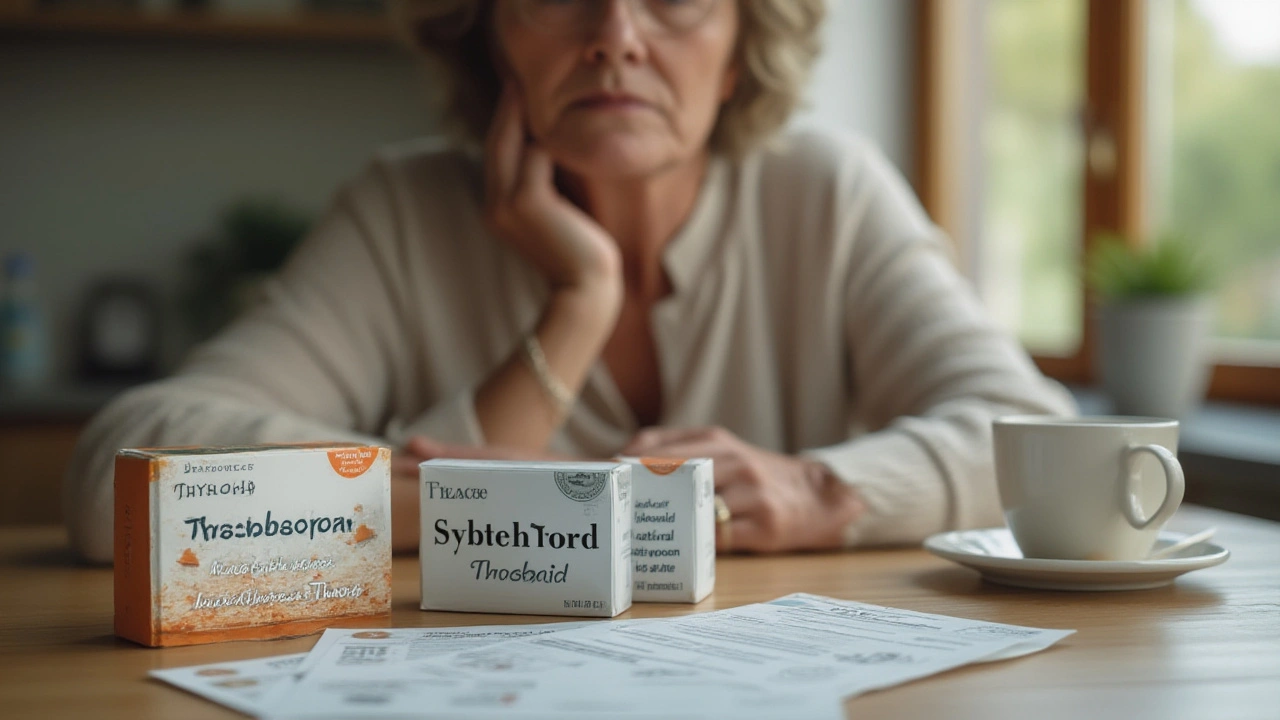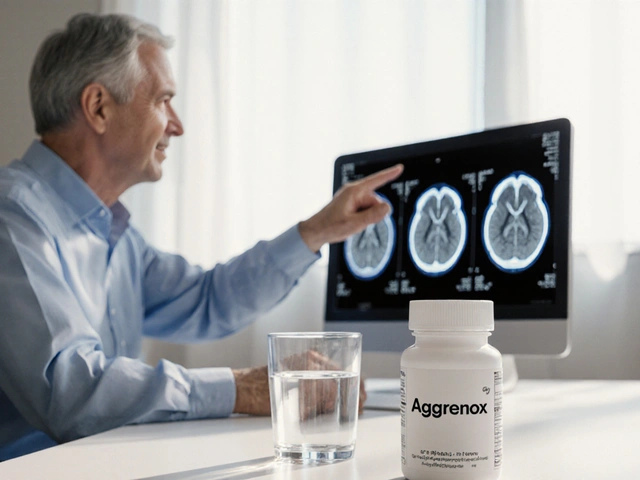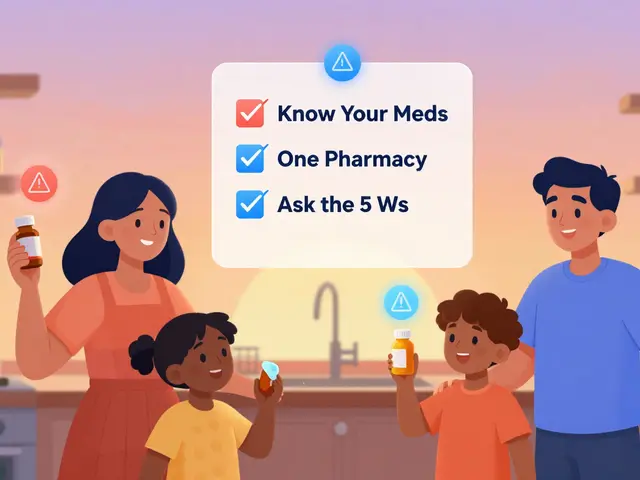Aggrenox vs. Top Antiplatelet Alternatives: Detailed Comparison for Stroke Prevention
October 1 2025Levothyroxine alternatives: what to know
If levothyroxine isn't working for you or you want other options, this guide explains practical alternatives and how they differ. I’ll cover the main drug options, monitoring needs, common side effects, and questions to ask your doctor. No fluff—just the facts you can use.
Medication options and how they differ
The simplest alternative is liothyronine (T3). It acts faster than levothyroxine and can raise energy and metabolism quickly. Doctors sometimes add T3 to T4 when symptoms persist despite normal labs. Another choice is natural desiccated thyroid (NDT) from porcine sources, sold under names like Armour Thyroid and Nature-Throid. NDT contains both T4 and T3 and smaller thyroid hormones. Some patients report feeling better on NDT, but clinical evidence is mixed.
Combination therapy blends synthetic T4 (levothyroxine) with T3. This aims to mimic a more natural hormone balance. Your doctor may try it if you have persistent symptoms or problems converting T4 to T3. There are also compounded formulations that let doctors pick specific ratios of T4 and T3, but quality and consistency can vary between pharmacies.
Safety, monitoring, and practical tips
Every alternative requires careful monitoring. Your doctor will check TSH and may add free T4 and free T3 tests. If you switch medicines, expect blood work 6–8 weeks after the change. People with heart disease, osteoporosis, or those who are pregnant need extra caution—T3 can cause palpitations or worsen bone loss when doses are too high.
Don’t change brands or forms without talking to your clinician. Dosing is not the same across products. What feels like a small change can shift your labs and symptoms. If you try NDT or add T3, start low and adjust slowly under supervision. Keep a symptom log—note energy, sleep, weight, digestion, and mood—so you and your clinician can judge progress objectively.
Other practical strategies include checking for conditions that affect thyroid function or conversion, like iron deficiency, vitamin D low levels, and chronic inflammation. Certain medications and supplements interfere with thyroid drug absorption—take levothyroxine on an empty stomach and separate it from calcium, iron, and antacids by several hours.
Cost and access matter. Some alternatives are pricier or not covered by insurance. NDT brands can vary; some patients pay out of pocket. Compounded T3/T4 may need specialty pharmacy. Expect to wait 4–12 weeks to notice steady changes depending on the medicine. Keep copies of lab results and a medication list for every provider. If you plan pregnancy, tell your clinician—thyroid needs change and dose often increases. If you use supplements like biotin, stop before blood tests because they can skew results.
Ask questions, track symptoms, and never change dose without medical supervision. Stay informed daily.
 28 Jul
28 Jul
Desiccated Thyroid vs. Synthroid: Comparing Effectiveness, Dosage, and Side Effects
Explore the pros and cons of desiccated thyroid and Synthroid for hypothyroidism. See a detailed breakdown of effectiveness, dosing, and side effects.
Read More...




